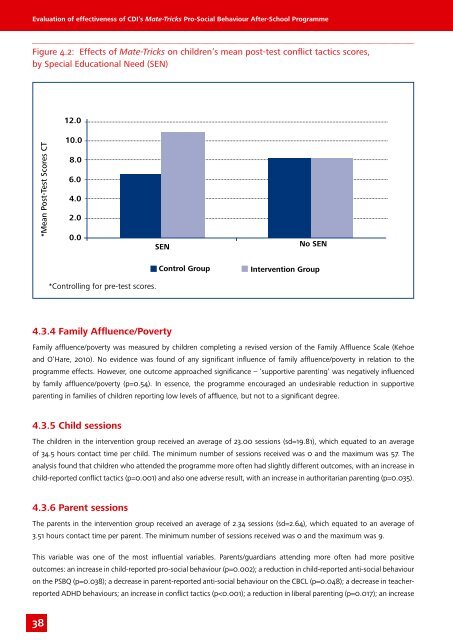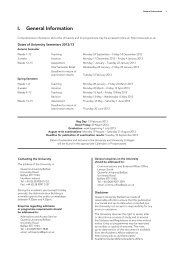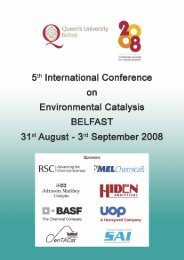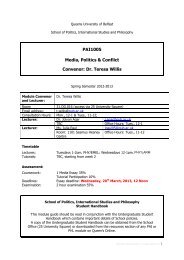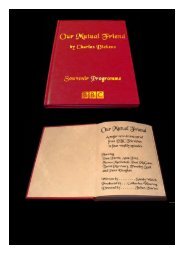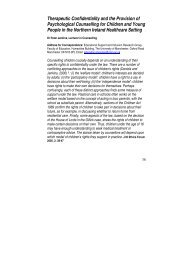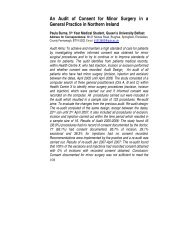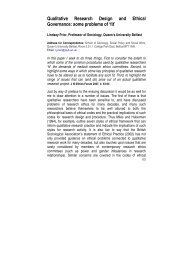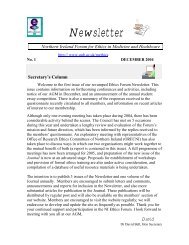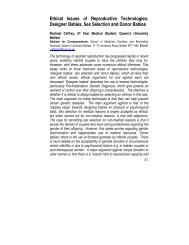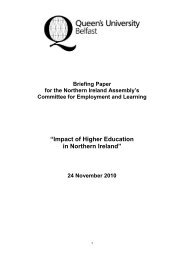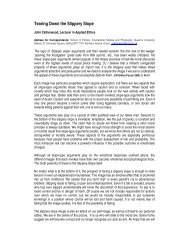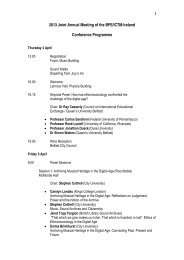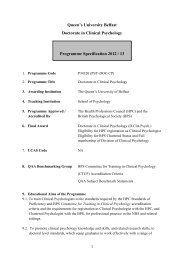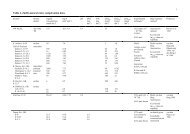Download Full Report (PDF, 1.36MB) - Queen's University Belfast
Download Full Report (PDF, 1.36MB) - Queen's University Belfast
Download Full Report (PDF, 1.36MB) - Queen's University Belfast
You also want an ePaper? Increase the reach of your titles
YUMPU automatically turns print PDFs into web optimized ePapers that Google loves.
Evaluation of effectiveness of CDI’s Mate-Tricks Pro-Social Behaviour After-School Programme<br />
Figure 4.2: Effects of Mate-Tricks on children’s mean post-test conflict tactics scores,<br />
by Special Educational Need (SEN)<br />
*Mean Post-Test Scores CT<br />
4.3.4 Family Affluence/Poverty<br />
Family affluence/poverty was measured by children completing a revised version of the Family Affluence Scale (Kehoe<br />
and O’Hare, 2010). No evidence was found of any significant influence of family affluence/poverty in relation to the<br />
programme effects. However, one outcome approached significance – ‘supportive parenting’ was negatively influenced<br />
by family affluence/poverty (p=0.54). In essence, the programme encouraged an undesirable reduction in supportive<br />
parenting in families of children reporting low levels of affluence, but not to a significant degree.<br />
4.3.5 Child sessions<br />
The children in the intervention group received an average of 23.00 sessions (sd=19.81), which equated to an average<br />
of 34.5 hours contact time per child. The minimum number of sessions received was 0 and the maximum was 57. The<br />
analysis found that children who attended the programme more often had slightly different outcomes, with an increase in<br />
child-reported conflict tactics (p=0.001) and also one adverse result, with an increase in authoritarian parenting (p=0.035).<br />
4.3.6 Parent sessions<br />
The parents in the intervention group received an average of 2.34 sessions (sd=2.64), which equated to an average of<br />
3.51 hours contact time per parent. The minimum number of sessions received was 0 and the maximum was 9.<br />
This variable was one of the most influential variables. Parents/guardians attending more often had more positive<br />
outcomes: an increase in child-reported pro-social behaviour (p=0.002); a reduction in child-reported anti-social behaviour<br />
on the PSBQ (p=0.038); a decrease in parent-reported anti-social behaviour on the CBCL (p=0.048); a decrease in teacherreported<br />
ADHD behaviours; an increase in conflict tactics (p


